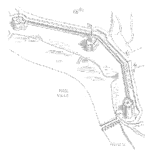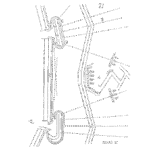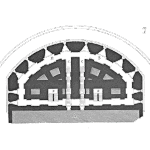
This might be easier to read printed out.
Your Reliability Engineering Professional Development Site
by Fred Schenkelberg Leave a Comment
by Fred Schenkelberg 3 Comments

One of the most basic skills needed for the CRE exam is the ability to correctly read the Standard Normal Table.
Writing this short how-to article would be really easy if there were only one way to create the table. There isn’t. It seems every author has to create a unique way to tabulate the values. [Read more…]
by Fred Schenkelberg 5 Comments

For our use of the Weibull distribution, we typically use the shape and scale parameters, β and η, respectively. For a three parameter Weibull, we add the location parameter, δ. [Read more…]
by Fred Schenkelberg Leave a Comment

For a stable process, nothing much happens. If the stable process is producing acceptable products, we should expect to continue to produce acceptable products.
Unless something changes. [Read more…]
by Fred Schenkelberg Leave a Comment

Once you decide to monitor a process and after you determine using an $- \bar{X} -$ & s chart is appropriate, you have to construct the charts.
The $- \bar{X} -$ & R charts use the range as an approximation of the variation in the population. When feasible use the standard deviation, s, rather than the range, R for the improved efficiency in detecting meaningful changes in process variation. [Read more…]
by Fred Schenkelberg 6 Comments

Once you decide to monitor a process and after you determine using an $- \bar{X} -$ & R chart is appropriate, you have to construct the charts.
This is not difficult and by following the 8 steps below you will have a robust way to monitor the stability of your process. [Read more…]
by Fred Schenkelberg Leave a Comment

What are Variables Control Charts?
From NIST Engineering Statistics Handbook, section 6.3.2, with edits and additions.
During the 1920’s, Dr. Walter A. Shewhart proposed a general model for control charts as follows: [Read more…]
by Fred Schenkelberg 12 Comments

Consider a handy flow chart and set of descriptions that will assist you in selecting the appropriate control chart, or at least understand the differences. [Read more…]
by Fred Schenkelberg 1 Comment

Statistical process control (SPC) is not a control chart alone.
SPC is a set of tools and a thought process to identify, measure, monitor and improve important elements of product development and production. I’ve seen very good and very bad implementations of SPC. [Read more…]
by Fred Schenkelberg 3 Comments

I’m about to leave on a long trip and much of it without internet. So, this post and the next couple are homework for you. Take a look, work the problem, solve it, then show your work. Comment with why you chose your response and why you didn’t select one of the others.
This is question 16 from the ASQ CRE 2009 sample exam. [Read more…]
by Fred Schenkelberg 3 Comments

Recently a question came to me about the difference between hazard rate and failure rate. A lot of literature and reference use these two terms interchangeably. I have long thought there is a difference, and to check my understanding I asked a good friend and reliability engineering consultant Chet Haibel. He provides a slide set (below) that described the various functions we use working reliability statistics and he details out the functions when using the exponential distribution.
Please review the slides and comment or ask questions – both Chet and I will attempt to help clarify any misunderstandings. I do think the slides are excellent and will do a great job providing a review of basic reliability math and the exponential distribution.
Related:
Using The Exponential Distribution Reliability Function (article)
Basic Statistics (article)
The Exponential Distribution (article)
by Fred Schenkelberg 2 Comments

Over the past few weeks, we have explored about 8 different hypothesis test formulas. There are more. So, how do you determine which test to perform? Well, that depends on the question you are trying to answer and the type of data you’re dealing with. [Read more…]
by Fred Schenkelberg Leave a Comment

The F-test provides a means to compare paired data variances. It is a variance hypothesis test.
If we are exploring the precision of one measuring device or another, or we are comparing assembly processes, we often want to know if the variance is different or not.
Working with data from normal distributions from two different processes or devices, we know from statistical theory that the ratio (s1)2 / (s2)2 is described by the F distribution.
There are three hypothesis test possible, basically to test if the population variances are different, or one is less than or greater than the other. The following details the three test’s null and alternative hypotheses. [Read more…]
by Fred Schenkelberg Leave a Comment

As with the Markov Inequality, we may find useful information from a list of values, say time to failure data. Again, none of the numbers may be negative for this to apply, yet with life data that is rarely the case.
Short on time- a common situation for reliability engineers; we have only the mean, standard deviation and number of values in a list. And, we need to say something about the data and the number or fraction of value above a specific value. [Read more…]
by Fred Schenkelberg Leave a Comment

If we have a list of numbers, saw cycles to failure for a test. None are negative. And, we do not have time for a complete analysis before being asked about the results.
What can we do?
In this case, the Markov Inequality may prove useful for a quick assessment of the results. [Read more…]